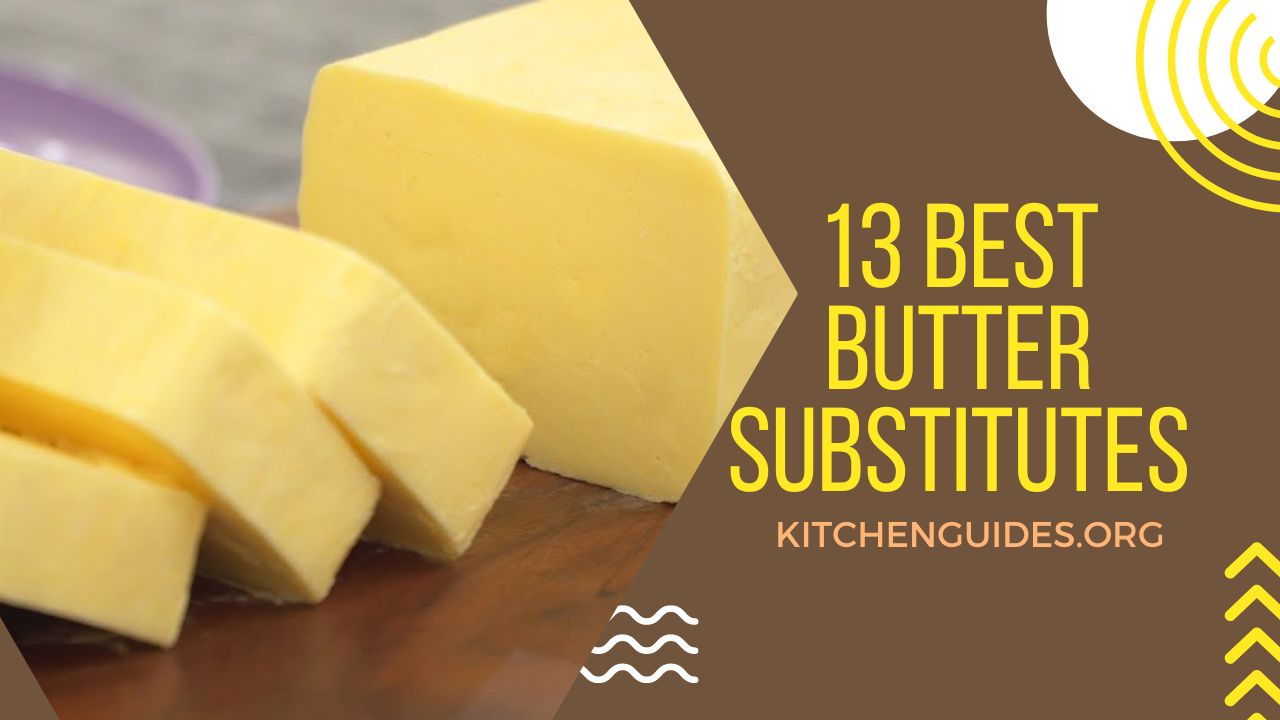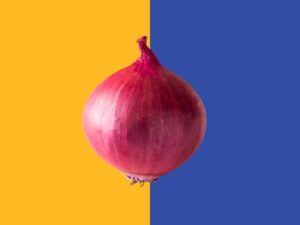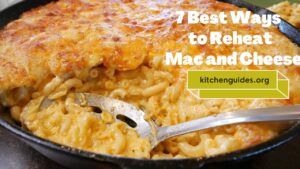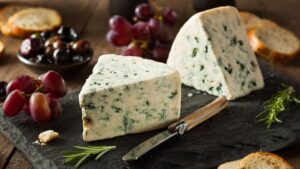The name sounds benign enough, but butter is actually one of the worst ingredients for your health. Not only is butter very high in calories, but it also contains any number of trans-fats that are known to lead to an increased risk of strokes and heart disease.
But with all these restrictions on butter, it can be difficult to find something else that tastes good enough to serve as a substitute with all our favorite dishes. Here’s a list of some other ingredients you can use to replace butter in the kitchen.
Why You May Need To Replace Butter In Baking?
Butter is the main ingredient of most desserts. It is used in baking, frying, sautéing and making gravy.
- Butter is high in saturated fat and low in polyunsaturated fat. Eating too much saturated fat can raise cholesterol levels, increasing your risk of heart disease.
- Baking with butter instead of margarine because it might taste better than the alternative. However, some people who have an allergy to milk protein may be more sensitive to the small amounts of casein in butter. If you have a severe problem with casein, you should avoid eating butter altogether.
- Butter is made up of several different types of fatty acids. It’s high in saturated fat and also contains some monounsaturated fat. One tablespoon of butter also contains about 100 calories, which may be why some individuals choose to avoid this type of spread, especially if they’re watching their weight.
Best Alternatives To Butter
Mashed Bananas
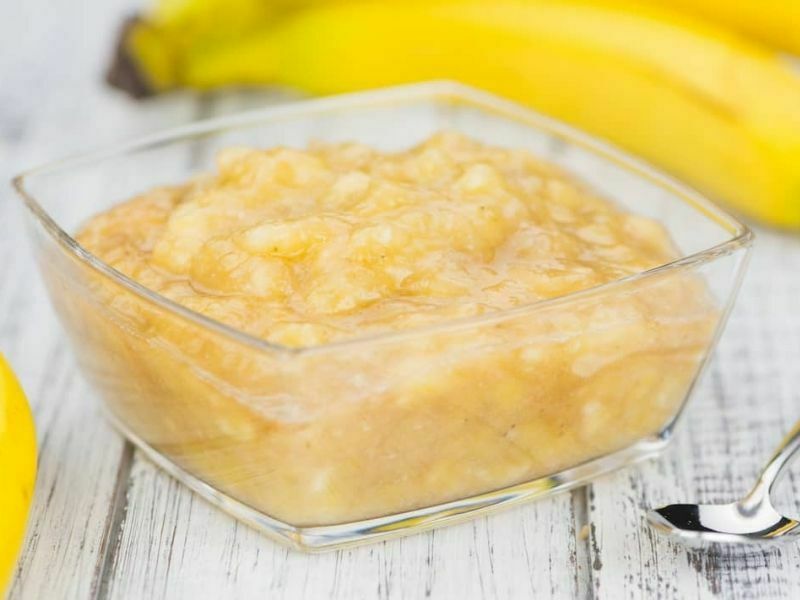
Mashed bananas provide a great, healthy alternative to butter and margarine in baking. They are quite sweet and with the addition of mashed banana, your baked goods will have a delightful taste of bananas. The consistency of mashed banana is thick, which makes it easier for you to substitute for butter or margarine and it will not affect the texture of your baked goods.
One disadvantage to mashed bananas is that they add an extra flavour to your baked goods; however, this can be a good thing if you want to make a banana-based dessert!
If you use mashed bananas in place of butter or margarine, add them in slowly due to their thick consistency. If you would like to reduce the amount of sugar you use in your baking, try replacing a small amount of sugar with mashed bananas.
Coconut Oil
Coconut oil is a popular butter substitute. However, if you do not like the taste of coconut, you will likely not enjoy the flavor it adds to your baked goods.
While coconut oil can be used in baking, it has a higher saturated fat content than butter. This may be something to consider if you are trying to lower your intake of saturated fats.
Coconut oil can also be used in meats such as chicken and will add a different flavor to the meat when cooked. It melts faster than butter so this is something else you need to take into consideration when baking with it. Additionally, the resulting baked good may have a different consistency than if you were to use butter.
Vegan Spread
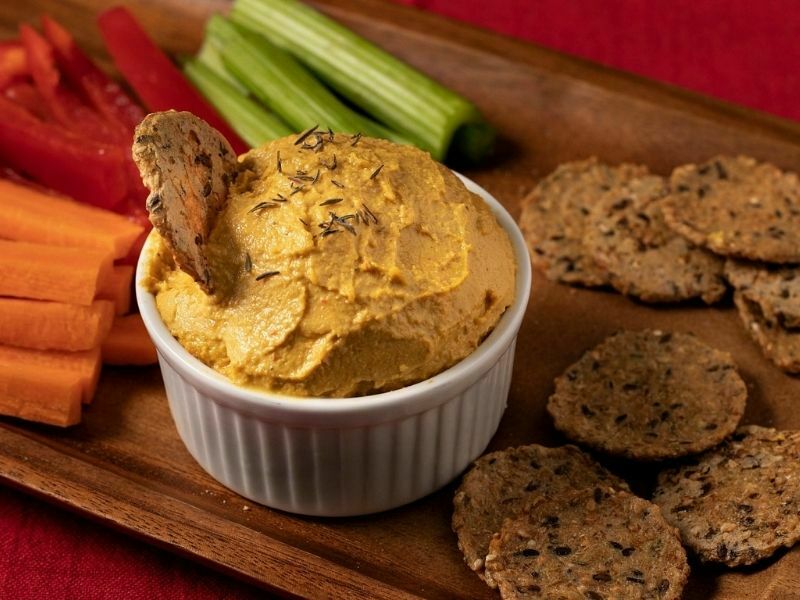
Choosing vegan spreads can be a good alternative to butter. There are many different types of spreads on the market, and they can be used in a variety of ways. Vegan spreads are particularly good for healthy options as well as people who do not consume butter.
Vegan spread is still popular with many people, as it is entirely dairy free and it tastes creamy. There are some interesting vegan spreads that are also lower in fat and calories than butter. However most of the products available contain high saturated fat levels but tend to be lower in calories than their butter counterparts.
Vegan spread is easy to make at home using a variety of ingredients, although there are some good brands that you can buy from your local supermarket.
Greek Yogurt
The ‘Greek’ in Greek yogurt is a reference to the straining process used to produce it. Traditional yogurt is strained to remove the whey (the liquid), which results in a thicker consistency and higher protein counts.
You can use Greek yogurt in place of butter or cream cheese in many recipes, such as frostings, pancakes, muffins, and breads.
If you have never tried Greek yogurt before, there are a few things you should know. For example, it is important to read the label as not all Greek yogurts are created equal. Some contain extra sugar and other additives that you may want to avoid. If you are using the yogurt for baking purposes, make sure it is full-fat; otherwise your baked good could come out much too moist or flat.
Olive Oil
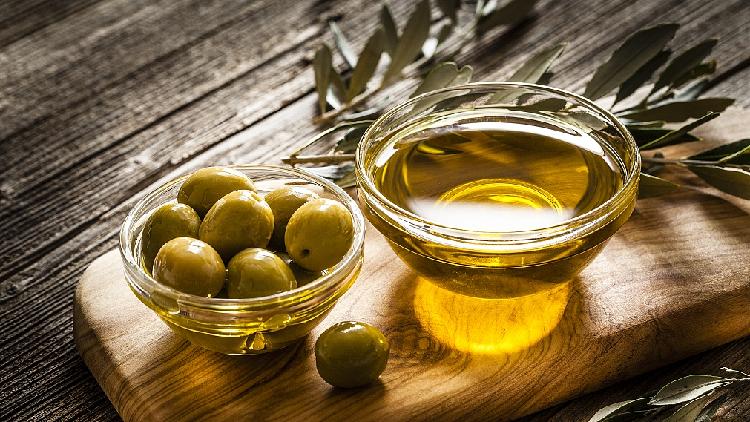
Olive oil is a great substitute for butter. It is a very healthy option, and is loaded with vitamins A, C and E, as well as being high in monounsaturated fatty acids.
Olive oil can be used in both sweet and savory recipes, but you need to consider the ratio of olive oil to butter when using it as a substitute. If you are using olive oil in cake recipes make sure that you use less olive oil than butter. For every cup of butter use only 3/4 cup of olive oil.
When substituting it for melted or creamed butter, consider using another alternative instead. Olive oil has a strong flavor and may not be suited to all recipes.
There are many types of olive oils available to buy, but extra virgin olive oil is the best option if you wish to use it as a substitute for butter in your cooking or baking.
Avocado
Avocado is a type of fruit that is native to Mexico. It is now grown in many countries and is consumed in a variety of ways, including raw and cooked.
For the purposes of cooking and baking, avocado is ideally used when it is ripe. It can be used interchangeably with butter as an alternative to butter.
The color of avocado can vary from dark green to light green depending on the ripeness of the fruit. The darker the color, the riper the fruit will be.
A number of people are put off using avocado due to its texture. In baking, it should be used as a 1:1 substitute for butter with some extra added for moisture where necessary.
It has a distinct taste which may not be universally liked by those who are unfamiliar with it, but this can be adjusted using food coloring or other ingredients.
Margarine
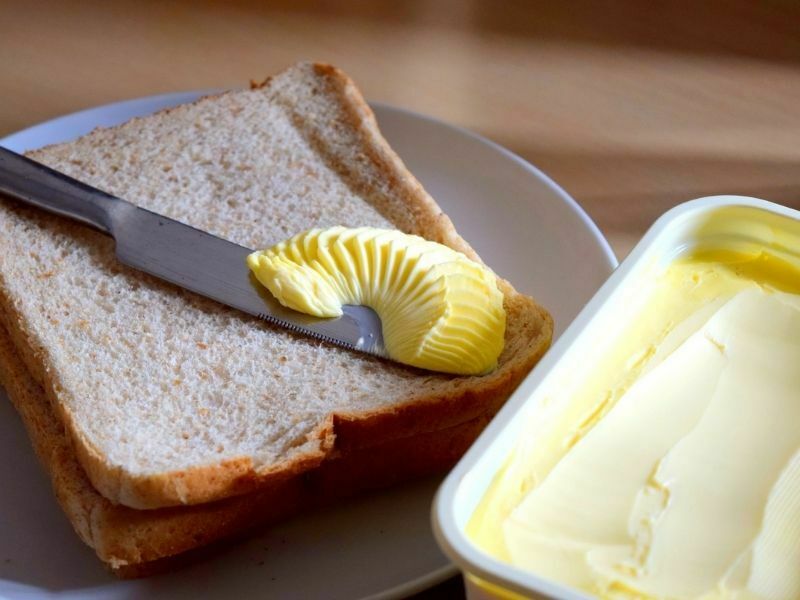
Margarine is a substitute for butter. It was created to be used in baking and cooking instead of butter.
Trying to use margarine as a substitute for butter can be difficult, so you may need to experiment with the amount of margarine you use in your baking.
Butter and margarine are both made from vegetable oil, but there the similarities end. Margarine has more water content than butter, this affects the consistency of your bakes. Butter also has a higher fat content than margarine.
Taste wise, butter and margarine are very different. Margarine is not as rich as butter, so it doesn’t add the same flavour to your bakes.
You can now buy salt free soft margarines which don’t contain any trans fats. This makes them a much healthier option, however they do taste different. If you only have a hard margarine available try adding some soft margarine to soften it up before using it in your baking. Softening hard butter will also work if you don’t want to add any soft margarine into your recipe.
Hummus
Hummus is one of the most popular items on menus in restaurants that cater to vegans and vegetarians. The thick, creamy spread looks a lot like butter and tastes great on veggies, crackers, and breads.
Hummus can be used as a substitute for things like butter or mayonnaise when you’re looking for something with fewer calories.
However, hummus isn’t usually the best choice for sweet recipes. It has a savory flavor that works well with meals like meatloaf or pasta salad but doesn’t taste great in frosting or cookies.
Before you use hummus to replace butter or mayonnaise in your favorite recipes, you should consider its texture. Hummus is fairly thick, so it works better for some dishes than others.
Mayonnaise
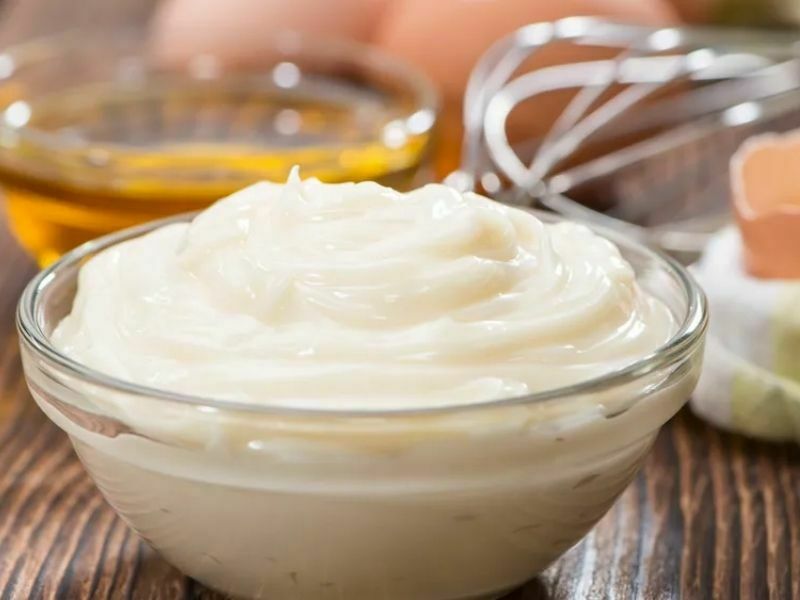
As we said, in certain recipes it works brilliantly! We have already told you about the recipe for the best scrambled eggs.
This mayonnaise is a secret ingredient of many chefs and is used by some to make mashed potato.
It does not work well with sweet recipes because it’s a savoury sauce, but for those that require a small amount of butter to add creaminess, it is a good option.
Taste it in a cream sauce on fish or poultry and you will see that it really works nicely.
Let us tell you something: this mayonnaise is not vegan! This is because traditionally this dressing has egg yolk. but if you want to do it vegan you can substitute the egg yolk with tofu or lemon juice. In this way it will be vegan but the taste will not be as good as with egg yolk.
Applesauce
Applesauce is a great substitute for butter because it is a healthier option. It will allow you to cut back on saturated fats and consume less fat overall. If you are baking and trying to reduce the amount of sugar in your food, applesauce can be used as a sweetener.
Applesauce is not the best alternative for butter. The texture is much different and if you do not take care when using it, the moisture in the applesauce will make your baked goods very wet.
As an alternative to margarine or coconut oil, applesauce has far less saturated fat than these other options, which is great if you are trying to reduce your overall intake of fat.
If you are looking to substitute applesauce for something else, consider the consistency of the product you are using it for. Applesauce has a very thick consistency, so it may not be ideal for use in something like a cake recipe that requires more liquid than applesauce has to offer.
Nut Butter
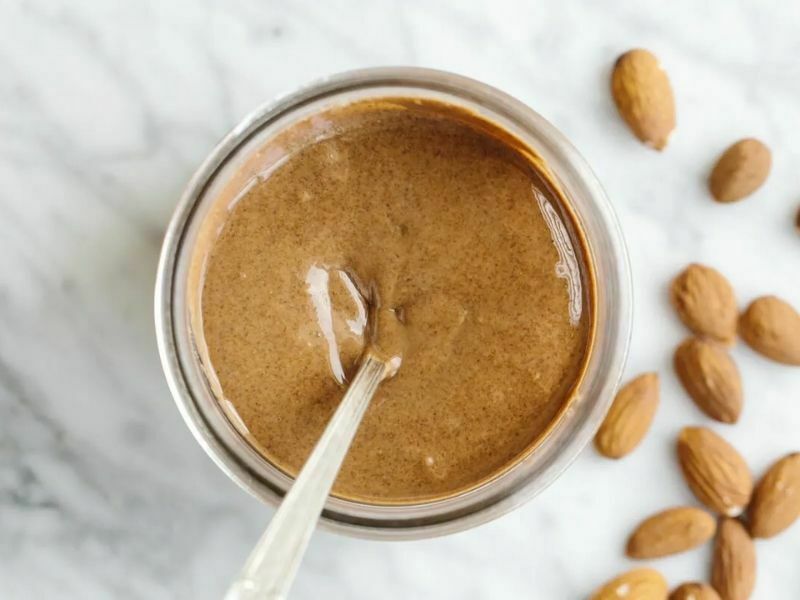
Instead of using regular butter, you can try nut butters, which are spreads made with peanuts or almonds. They have a different texture and taste than butter, but they are good substitutes if you don’t have a nut allergy.
You can use the same amount of nut butter as you would regular butter in your recipes. If you’re making something that needs melted butter, like a sauce, then substitute an equal amount of nut butter for the butter.
Nut butters are high in fat, so if you want to eat them on their own, then make sure that you get one that’s low in added sugar. You should also remember to watch how much you eat because it is easy to overeat nuts and seeds.
Vegetable Oil
Vegetable oil is a great substitute for butter in baking recipes, if you’re looking to save money or if you have a dairy allergy. It’s also good for anyone who wants to reduce calories in their diet.
Substitute three-quarters of a cup of vegetable oil for every one cup of butter called for.
You can use any type of vegetable oil, including canola oil and olive oil.
Vegetable oil has less fat than butter, so your baked goods will come out lighter but with more moisture. This means that the end product will be denser and fluffier than if you had used butter. If you want to replicate the texture that butter imparts, add in 1/2 teaspoon of salt per cup of vegetable oil.
Pumpkin Purée
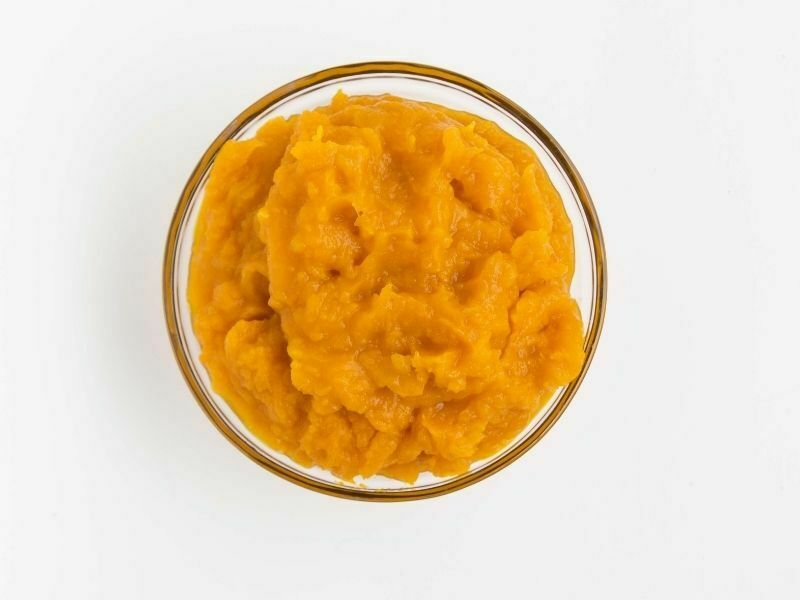
Pumpkin is a great natural product that can be used as a substitute for butter in recipes. It tastes great, is full of nutrients and has many uses. While pumpkin purée does need some care when adding to recipes, it is definitely worth trying out.
Pumpkin is a great substitute for butter in baking, so you can use it to create some interesting new flavors. Given that it contains less calories than butter, this is also a useful way of reducing the fat content of your desserts. In place of the butter, simply use two parts pumpkin to one part sugar, and you will have an amazing tasting pie or dessert that will be much better for you than the usual kind.
Given that pumpkin is quite sweet, this means that you can also use it in savory dishes. Pumpkin purée pairs particularly well with chicken and fish dishes and gives a great flavor to them. As an added bonus, this means your food will be healthier and you will cut down on your saturated fat intake too.
is margarine healthier than butter
Margarine is a relatively new alternative to butter that is free of animal fats and created from vegetable, corn, or soybean oils. Margarine is more often described as being “spreadable,” although this is not technically true. Even though margarine has a similar consistency to butter, the two are still different in many ways.
Margarine typically contains a mixture of hydrogenated and non-hydrogenated oil, while butter contains only animal fats. Margarine also uses fewer ingredients than butter and has a longer shelf life due to the fact that it is processed using an array of additives that keep it from going rancid quickly. Keep in mind that some margarine brands may contain partially hydrogenated oils, which can contribute to heart disease.
When it comes to cooking, butter and margarine are not interchangeable. Butter is usually best for cooking or baking recipes that require creaming or aerating ingredients (such as a cake mix), while margarine is better when you need a product that works well at low temperatures. This is because butter melts at room temperature and will separate when used at high temperatures. Butter is also a better option for baking when you want to achieve a light, flaky texture.
Although butter usually has less saturated fat than margarine, it is still important to limit your consumption of saturated fats. Instead of using butter and margarine at home, try olive oil or canola oil instead.
Butter vs. Olive Oil
Butter is a dairy product that is made from churning cream or milk until it becomes thick and creamy. Butter contains higher amounts of saturated fat than unsaturated fat.
Olive oil is most commonly an edible vegetable oil that is made from olives, which are fruit that grow on the olive tree. Olive oil typically contains lower levels of saturated fats than butter, but usually higher levels of monounsaturates.
When comparing the two different oils, researchers found that another factor that affects your health is where it was produced. Olive oil is usually produced in a very controlled environment and many times in a manner that ensures the product is pesticide free. Butter also has to be produced in a certain way to ensure it will be stable at room temperature and be as natural as possible. However, a large percentage of the butter we use today is not even from the United States.
Although butter is usually lower in saturated fat, it does have a higher amount of cholesterol than olive oil. Butter also has more water and less protein than olive oil.
Both of these products can be made from the same ingredients, but put through different processes. When comparing them on a nutritional value scale, it is easy to see that olive oil is higher than butter on the nutrient scale .
When it comes to cooking with olive oil, you can use it for anything. However, butter is a great way to put flavor on vegetables or in a marinade for a beef dish.
Which one is right for you? You can make the choice based on your needs and preference, but keep in mind that butter has more cholesterol than olive oil.
Final Thoughts
Each of these substitutes is deliciously addictive and can be used on its own or combined in recipes to add a variety of flavors. The richness of butter, the smoothness of coconut oil or the lightness that you can achieve with olive oil, each one adds its own uniqueness and when it comes to cooking we found it difficult to replace butter with just one substitute.

